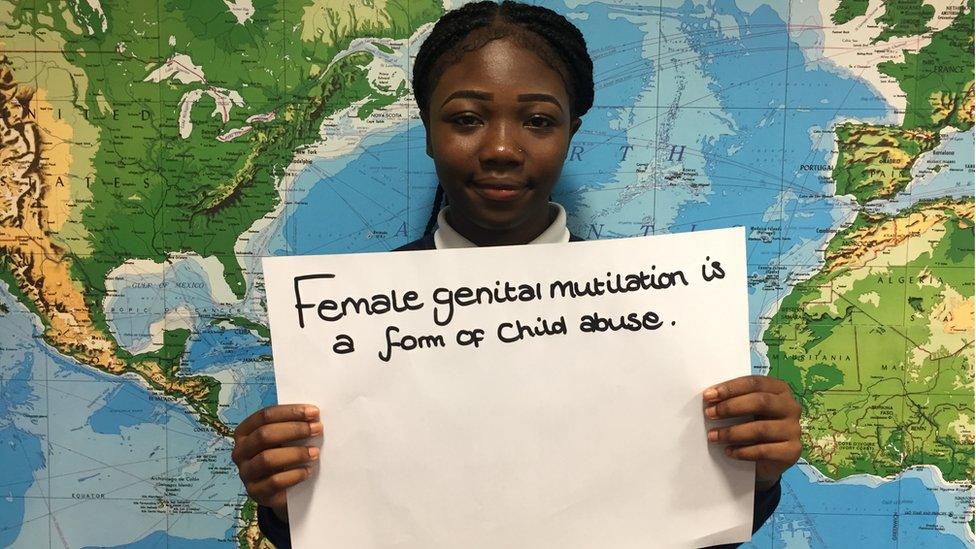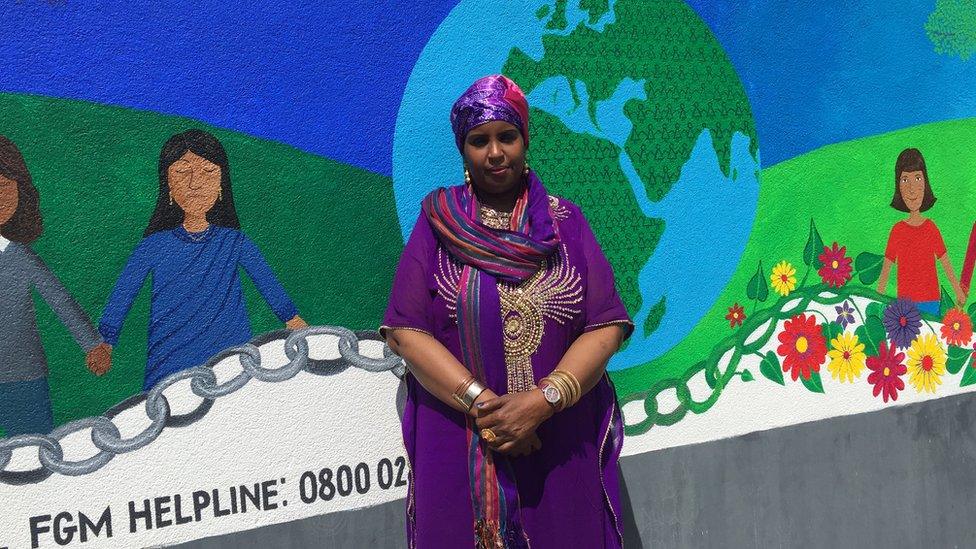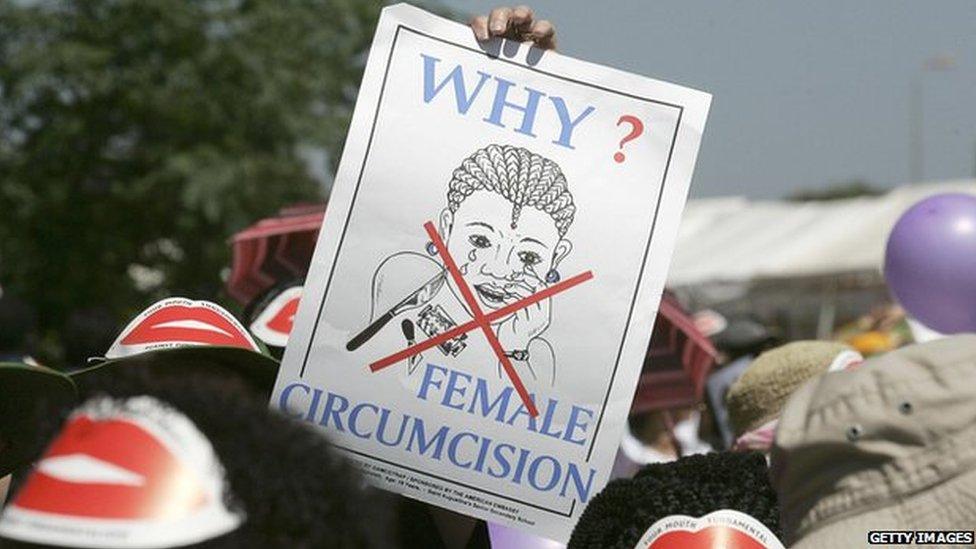The first ever FGM figures show nearly 6,000 new cases in England
- Published

The first ever recorded figures for female genital mutilation (FGM) show that between April 2015 and March 2016 there were 5,702 new cases in England.
The data was recorded by doctors and nurses who have been obliged to do so since July 2015.
Most of the women and girls were born in Africa and underwent the procedure there. But 43 girls were born in the UK and 18 of those had it done here.
The data was collected from the Health and Social Care Information Centre.
The true extent of the abuse is thought to be much higher with the government estimating 170,000 women and girls in the UK have undergone the procedure.
It says a further 65,000 girls under the age of 13 are at risk of female genital mutilation.
Wales, Northern Ireland and Scotland have not collected any figures on FGM.
It's hoped the data will provide an idea of how to tackle the abuse, which is illegal in the UK.
Public Health and Innovation Minister Nicola Blackwood told Newsbeat: "FGM devastates lives, and we are committed to ending this abusive practice.
"Too often FGM is a hidden crime so to help us do this, we must know the scale of the problem which is why we are collecting data on FGM across the NHS.
"This means we can protect those at risk, provide support to survivors and ultimately end this crime once and for all."
No-one has ever been convicted of carrying out female genital mutilation
"It's very hard to prosecute because you're asking a child to go into court and testify against their parents," FGM campaigner Hibo Wadere explains.
"These parents aren't actually abusers in their mind, they think what they're doing is good for their daughters. so the children don't see this as child abuse."
Hibo was six when she was held down and cut. Read her full story.

Hibo now educates children about FGM
DCI Leanne Pook is involved in tackling FGM in her force in Avon and Somerset.
She's only had a handful of potential FGM cases in six years.
"I think what we have to do is work alongside communities so that we get intelligence about where FGM is happening, when it is happening and who is carrying out the FGM.
"That's the stuff investigations are made of and that's what we're getting far too little of."
Campaigners argue that all schools should teach students the facts of FGM in sex and education classes
FGM survivor and now campaigner Hibo Wadere holds sessions on FGM with students in schools.
"Education is the key point in eradicating FGM because they are young minds. These are the future leaders, these are the ones that need protecting."
The government says it's up to individual head teachers to decide whether children get taught about it.
Many girls are taken to their family's home countries during the summer holidays so that FGM can be carried out
FGM has been illegal in the UK since 1985 and the law was strengthened in 2003 to prevent girls travelling from the UK and undergoing FGM abroad.
In Somalia in eastern Africa, FGM is legal and 95% of women there have undergone the procedure.
The new data shows Somalia accounts for more than a third of all newly recorded women and girls with a known country of birth.
The myths about FGM
Fact or fiction? The myths about FGM., external
Other countries with a large volume of cases include Eritrea in eastern Africa, the Sudan in northern Africa and Nigeria and the Gambia in western Africa.
Kam Thandi from the children's charity NSPCC says most calls to its helpline regarding FGM are made in July.
"It's a perfect opportunity for young people who are being forced to undergo this procedure, to have the procedure, and also heal by the time they come back to this country and re-engage with school."

Facts about FGM
FGM is the partial or total removal of the female external genitalia or other injury to the female genital organs for non-medical reasons
It is illegal in the UK and classed as a form of child abuse
Around 10,000 girls under 15 who have migrated to England and Wales may have undergone FGM
If you need any help or support on FGM, you can contact the NSPCC's FGM helpline 0800 028 3550
Find us on Instagram at BBCNewsbeat, external and follow us on Snapchat, search for bbc_newsbeat